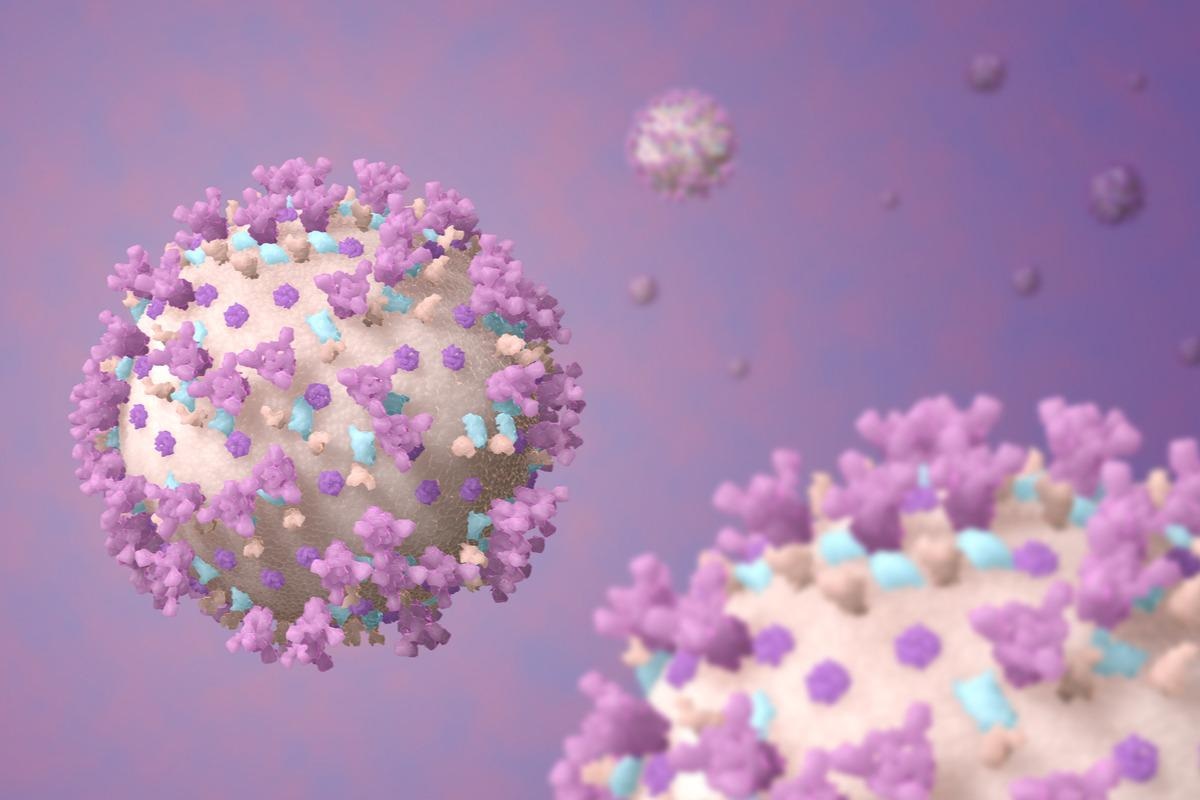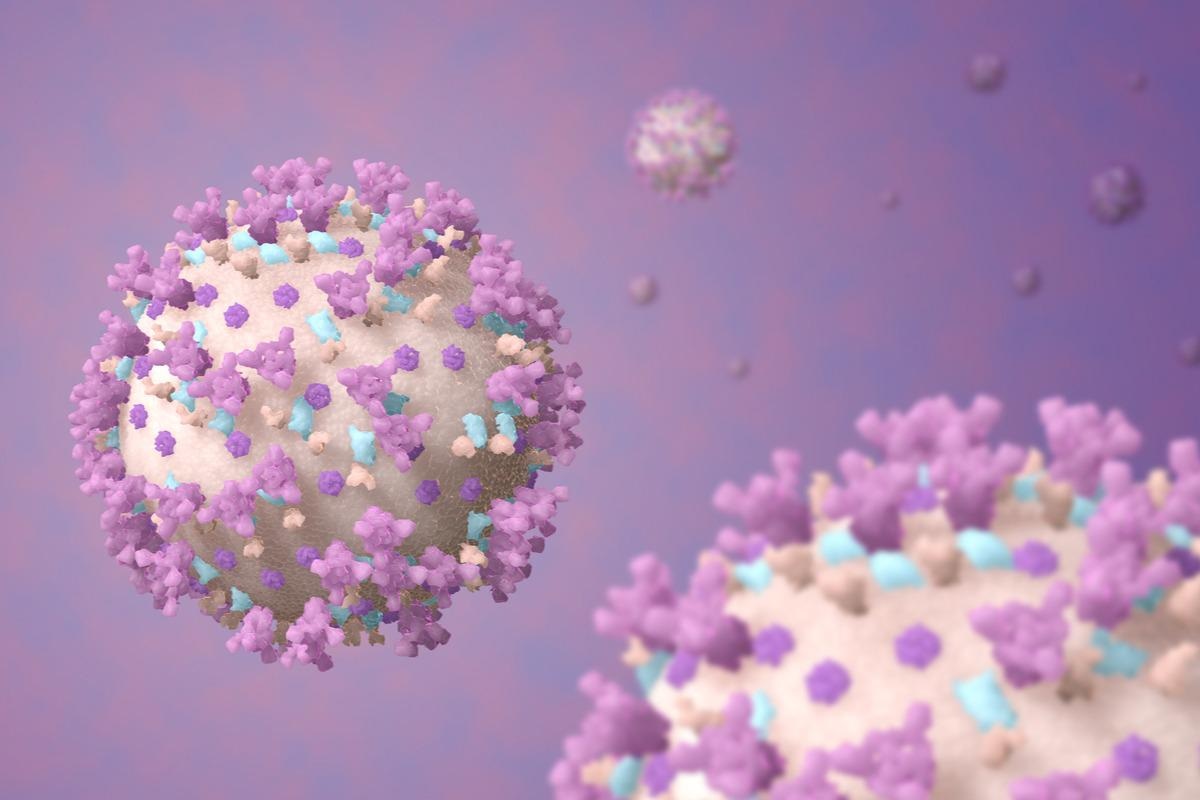A recent study posted to the medRxiv* preprint server evaluated the protection conferred by messenger ribonucleic acid (mRNA) vaccines and prior infection against severe acute respiratory syndrome coronavirus 2 (SARS-CoV-2) Omicron variant.

The SARS-CoV-2 mRNA vaccines (Pfizer’s BNT162b2 and Moderna’s mRNA-1273) have been effective against coronavirus disease 2019 (COVID-19). However, this evidence is based on studies of ancestral strain or variants that emerged before SARS-CoV-2 Omicron. It is also known that the prior history of COVID-19 protects against reinfection.
Nevertheless, both vaccine- and infection-induced immunity wane over time. More recently, studies revealed that protection by vaccination was sustained against hospitalization and death, albeit the efficacy was lower for confirmed and symptomatic disease due to the Omicron variant. Jails and prisons are particularly risky settings for SARS-CoV-2 transmission.
The California Department of Corrections and Rehabilitation (CDCR) began third/booster vaccination by late August 2021. By the end of December 2021, more than 54% of residents and over 20% of staff received the boosters. The first case of the Omicron variant was reported on December 10, 2021, and shortly after, substantial outbreaks emerged in residents and staff.
About the study
In the present study, researchers analyzed confirmed COVID-19 cases among incarcerated individuals and correctional staff in California. They estimated the effectiveness of mRNA vaccination against SARS-CoV-2 infection stratified by the number of doses administered, prior illness, and periods before or during the Delta wave.
The authors implemented a retrospective test-negative methodology for the December 24, 2021 – April 14, 2022 period, when the Omicron variant was dominant. Eligible subjects were residents incarcerated in a CDCR prison during the study period and staff working in custody or health care positions with regular contact with residents.
Partially vaccinated subjects, recipients of Janssen’s Ad26.COV2.S vaccine or vaccines unapproved by the Food and Drug Administration, and recipients of both BNT162b2 and mRNA-1273 vaccines were excluded. The researchers defined a case as a resident or staff member who tested positive for SARS-CoV-2 with polymerase chain reaction (PCR) or antigen tests.
The core objective of the study was to estimate protection against SARS-CoV-2 infection by vaccination or previous infection. The protection induced by vaccination or infection was estimated using weighted conditional logistic regression.
Findings
Overall, 23% of the 68,646 residents and 37.4% of 22,872 staff members tested SARS-CoV-2 positive. Besides, 15,783 residents and 8,539 staff cases were matched with 180,169 resident and 90,409 staff controls (SARS-CoV-2-negative). One-third of cases were previously infected, and most occurred during the pre-Delta period.
Vaccination coverage was higher among residents than staff for primary and booster series. More than 73.5% of residents completed the primary series compared to 54.7% of staff. About 49.1% of residents were boosted, while only 12.7% of staff received boosters.
Across both residents and staff members without prior infection, vaccine effectiveness against infection was 14.9% after two doses, which increased to 33.2% after booster vaccination and 43.2% compared to non-vaccinated subjects. A prior infection (before the Delta wave) was associated with an estimated 25.7% protection in the non-vaccinated subjects.
A more recent infection (Delta period) had about 47% protection compared to those infected before the Delta period and 60.8% compared to those without prior infection. A third vaccine dose significantly amplified protection over two doses among all subjects with the previous infection. The estimated protection was 47.8% after two vaccinations in those infected before the Delta period, while it was 61.3% after the third vaccination.
Contrastingly, the estimated protection for those infected when the prevalence of Delta variant was high was 73.1% after two doses and 86.8% after booster administration. An alternative analysis adjusting for the type of vaccine resulted in similar estimates. Further, consistent results were observed when propensity score matching was used instead of coarsened exact matching.
Conclusions
In line with previous studies, the highest levels of protection were observed in boosted individuals and convalescents. Further, vaccination substantially enhanced protection among convalescent individuals, especially after booster administration.
The study’s limitations include its observational nature with the potential for bias due to confounding. Moreover, it could not be confirmed whether infections during the study period were due to SARS-CoV-2 Omicron due to limited sequencing or molecular testing.
Notably, the study outcome was to estimate protection against confirmed infections and not other outcomes like symptomatic or severe disease. Although the findings indicated that mRNA vaccination or previous infection provided lower protection against SARS-CoV-2 Omicron, booster administration significantly confers additional protection.
*Important notice
medRxiv publishes preliminary scientific reports that are not peer-reviewed and, therefore, should not be regarded as conclusive, guide clinical practice/health-related behavior, or treated as established information.
- Chin, E. et al. (2022) "Protection against Omicron conferred by mRNA primary vaccine series, boosters, and prior infection". medRxiv. doi: 10.1101/2022.05.26.22275639. https://www.medrxiv.org/content/10.1101/2022.05.26.22275639v1
Posted in: Medical Science News | Medical Research News | Disease/Infection News
Tags: Antigen, Coronavirus, Coronavirus Disease COVID-19, covid-19, Efficacy, Food, Health Care, immunity, Omicron, Polymerase, Polymerase Chain Reaction, Respiratory, Ribonucleic Acid, SARS, SARS-CoV-2, Severe Acute Respiratory, Severe Acute Respiratory Syndrome, Syndrome, Vaccine

Written by
Tarun Sai Lomte
Tarun is a writer based in Hyderabad, India. He has a Master’s degree in Biotechnology from the University of Hyderabad and is enthusiastic about scientific research. He enjoys reading research papers and literature reviews and is passionate about writing.
Source: Read Full Article
